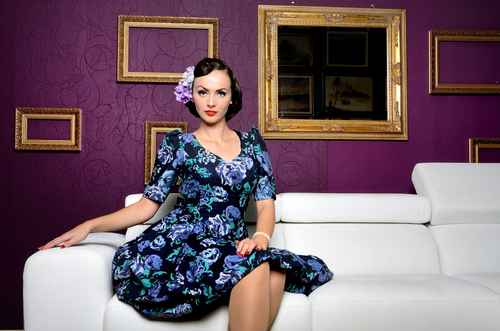Does marriage change you as a person?
According to Maroon 5’s Adam Levine, who has been married all of six weeks so we’ll have to take whatever he says with a grain of salt, being married makes him feel more “masculine.”
“If it’s the right marriage, if it’s the right person, the guy feels a little bit more like a man,” says Levine, People magazine’s sexiest man alive for 2013.
What about being married might make a man feel more like, well, a man?
At Role Reboot, Eric Sentell realizes that his evolution from an independent bachelor into an interdependent married man meant, yes, he’d have to give up some power — thus, his masculinity. But rather than lose his manliness, he benefited (as, presumably, did his wife):
Whereas a codependent person cedes identity and power to his or her partner and can hardly function independently, an interdependent person retains individual identity while also forging a partnership based on shared power. The unique benefits of interdependence convinced me that sharing power does not equate to a loss of masculinity. In fact, far more is gained than lost.
Still, I am curious what about being a husband makes a man feel more manly. A part of me wonders if Sexy Man Levine’s masculinity is coming less from a place of power, like Sentell, and more from a place of believing that as a man, he should protect and cherish his wife — what’s known as benevolent sexism.
On the surface, benevolent sexism doesn’t sound so bad; who among us doesn’t want to be cherished or protected or both? What’s so wrong about that?
Nothing — unless it’s based on the belief that “women are wonderful, but weak.” Thus a man can be more of a man (whatever that means) and a woman can be more of a woman (ditto). Insert gendered expectations here. But in general it would reinforce some women’s feelings of entitlement, that they somehow deserve to be made to feel special by their lover. As long as they are “nice,” that is.
So does that mean that some women feel more feminine after saying “I do”?
Asked, “What makes you feel feminine,” on Reddit, not one woman said being a wife or being married. Same at the Frisky, where women name painted nails, makeup and bubble baths as markers of femininity.
Becoming a Mrs? Nope.
In fact, being a wife is often a complicated reality for women; as poet Jill Bialosky wrote so succinctly in The Bitch in the House: 26 Women Tell the Truth about Sex, Solitude, Work, Motherhood and Marriage, “I had wanted to get married, but I realized now that I had never wanted to be a ‘wife.'”
Still, being married makes people feel grown-up, or at least that’s what Susan Pease Gadoua and I heard from the engaged couples we interviewed for The New I Do: Reshaping Marriage for Skeptics, Realists and Rebels.
“Marriage is just the next thing you do,” a bride-to be said as her fiance nodded in agreement. “You graduate, you get a job, you get married.”
“Our married friends just seem more adult,” another bride-to be said, despite the fact that she and her fiance had been living together for five years and are well established in their careers.
They’re not the only ones. “I was surprised how much I liked it when I first heard my wife refer to me as her ‘husband,’ and how much I liked saying ‘wife.’ I’m not sure why. Maybe it made me feel kind of grown up,” says former Salon columnist King Kaufman, then 34 years old.
And that’s why people who live together don’t really have the full experience of what it’s like to be married; not only do others view them differently (typically “less than“), but they themselves feel different about their relationship and each other.
But feminine? I have never heard a woman say that marriage makes her feel more feminine, although we are often advised by people like The Surrendered Wife author Laura Doyle to be feminine, aka “soft, delicate, and receptive,” in our marriage (and if we have to be told to be more feminine as a wife, it would seem as if marriage itself doesn’t automatically make us feel feminine). Which sounds a lot like perpetuating the benevolent sexism model — some women tend to be “soft, delicate, and receptive” therefore women who aren’t are seen as the problem.
I’m happy Mr. Levine feels more masculine in his marriage. I’m hopeful his wife, Behati Prinsloo, thinks it’s great, too. She hasn’t weighed in on whether marriage has made her appreciate her hubby’s boosted masculinity and/or have a new-found appreciation of her own femininity. But it’s clear that anyone who wants to tie the knot might want to pay attention.
(polls)


















Marriage feminizes men. It’s all about surrendering all control over his life so that she can make all the decisions for her benefit and that of her kids. His needs then are deemed inconsequential and unnecessary. Back to work, wage slave! Drag home that dead dino!